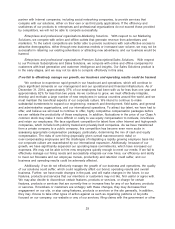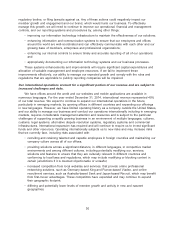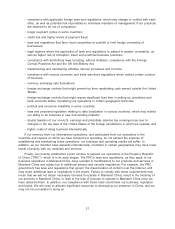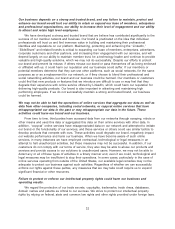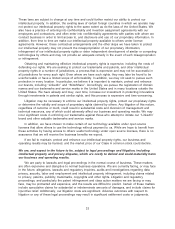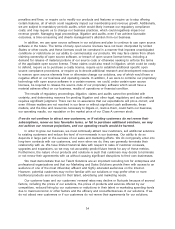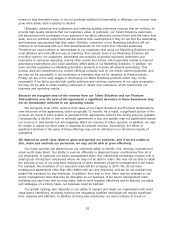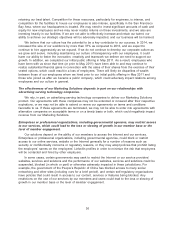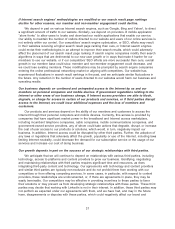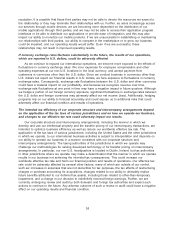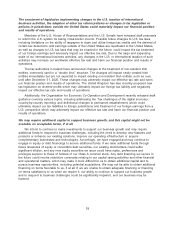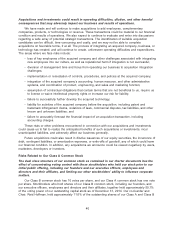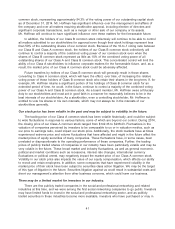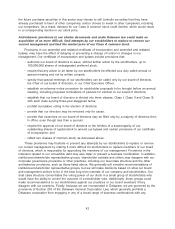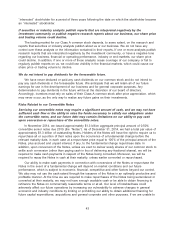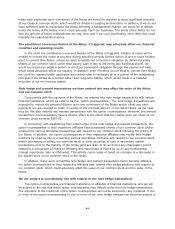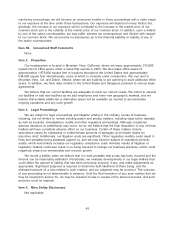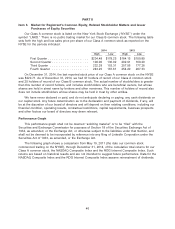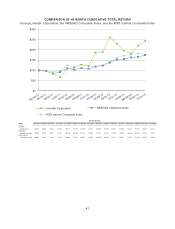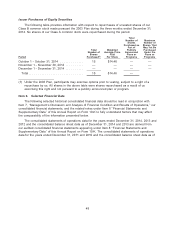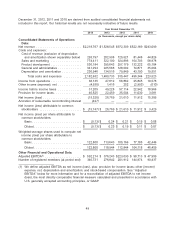LinkedIn 2014 Annual Report Download - page 41
Download and view the complete annual report
Please find page 41 of the 2014 LinkedIn annual report below. You can navigate through the pages in the report by either clicking on the pages listed below, or by using the keyword search tool below to find specific information within the annual report.The enactment of legislation implementing changes in the U.S. taxation of international
business activities, the adoption of other tax reform policies or changes in tax legislation or
policies in jurisdictions outside the United States could materially impact our financial position
and results of operations.
Members of the U.S. House of Representatives and the U.S. Senate have released draft proposals
to reform the U.S. system for taxing cross-border income. Possible future changes to U.S. tax laws,
including limitations on the ability of taxpayers to claim and utilize foreign tax credits and the deferral of
certain tax deductions until earnings outside of the United States are repatriated to the United States,
as well as changes to U.S. tax laws that may be enacted in the future, could impact the tax treatment
of our foreign earnings and adversely impact our effective tax rate. Due to the large and expanding
scale of our international business activities, any changes in the U.S. or international taxation of such
activities may increase our worldwide effective tax rate and harm our financial position and results of
operations.
The tax authorities in Ireland have announced changes to the treatment of non-resident Irish
entities, commonly used in a ‘‘double Irish’’ structure. The changes will impact newly created Irish
entities immediately but are not expected to impact existing non-resident Irish entities, such as ours,
until after December 31, 2020. These changes may adversely impact our effective tax rate and harm
our financial position and results of operations. The United Kingdom has also recently proposed new
tax legislation on diverted profits which may ultimately impact our foreign tax liability and negatively
impact our effective tax rate and results of operations.
Additionally, the Organisation for Economic Co-Operation and Development recently released draft
guidance covering various topics, including addressing the ‘‘tax challenges of the digital economy,’’
country-by-country reporting, and definitional changes to permanent establishment, which could
ultimately impact our tax liabilities to foreign jurisdictions and treatment of our foreign earnings from a
U.S. perspective which may adversely impact our effective tax rate and harm our financial position and
results of operations.
We may require additional capital to support business growth, and this capital might not be
available on acceptable terms, if at all.
We intend to continue to make investments to support our business growth and may require
additional funds to respond to business challenges, including the need to develop new features and
products or enhance our existing solutions, improve our operating infrastructure or acquire
complementary businesses and technologies. Accordingly, we have engaged and may continue to
engage in equity or debt financings to secure additional funds. If we raise additional funds through
future issuances of equity or convertible debt securities, our existing stockholders could suffer
significant dilution, and any new equity securities we issue could have rights, preferences and
privileges superior to those of holders of our Class A common stock. Any debt financing we secure in
the future could involve restrictive covenants relating to our capital raising activities and other financial
and operational matters, which may make it more difficult for us to obtain additional capital and to
pursue business opportunities, including potential acquisitions. We may not be able to obtain additional
financing on terms favorable to us, if at all. If we are unable to obtain adequate financing or financing
on terms satisfactory to us when we require it, our ability to continue to support our business growth
and to respond to business challenges could be significantly impaired, and our business may be
harmed.
39


